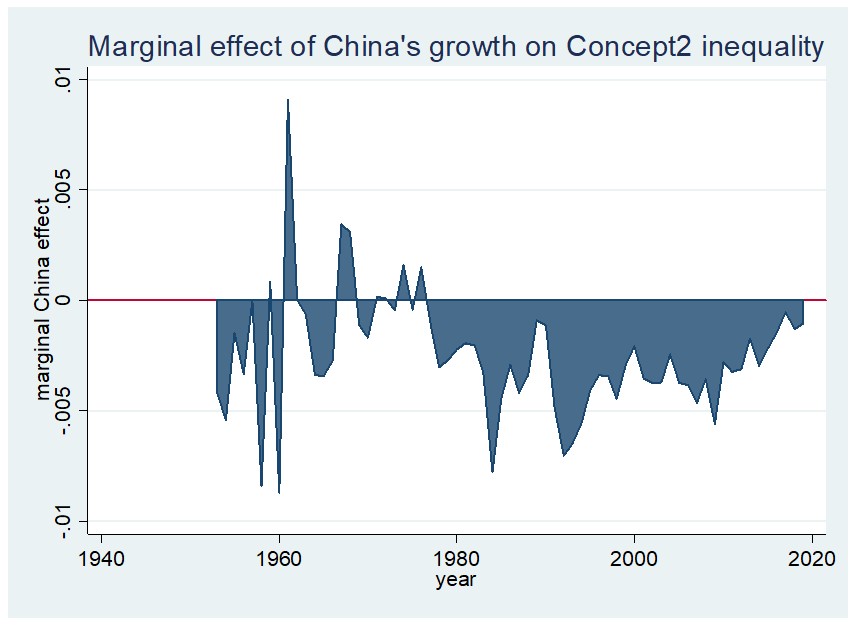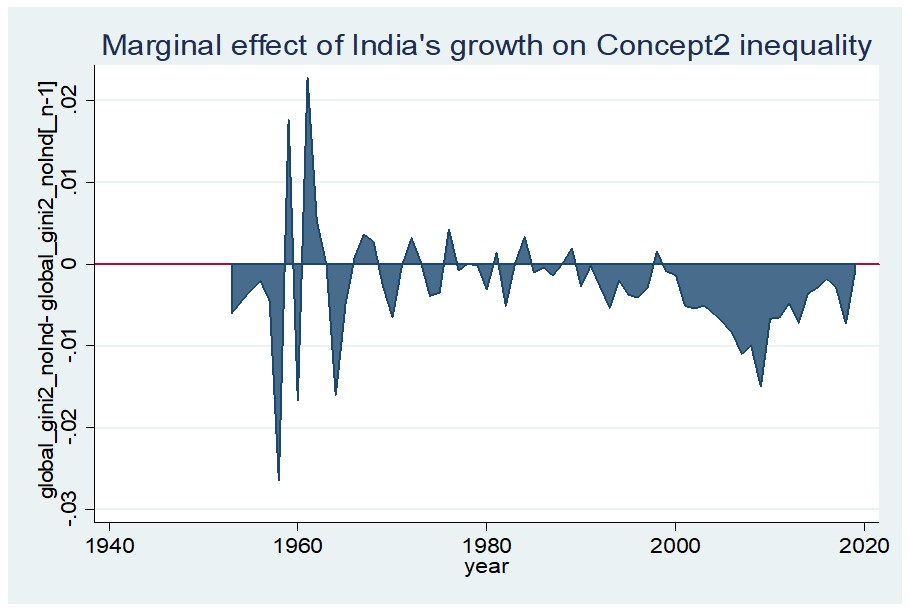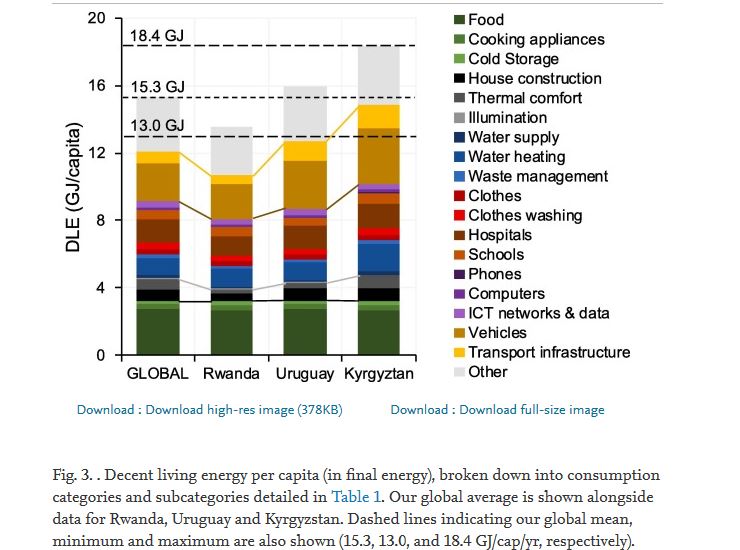
During the past 50 years, India and China had played key roles in influencing, and then reducing, global inequality. One way to look at their role is to see how they affect population-weighted international inequality (where country incomes are app. by GDPpc in PPP dollars).
China's growth effect has been uneven until the late 1970s. (When the value in the graph is negative, China's growth *reduces* global inequality.)
Note the spike in 1961: China's GDPpc went down by more than 10% and that added to global inequality.
Note the spike in 1961: China's GDPpc went down by more than 10% and that added to global inequality.

After ~1975, every year China contributed to reducing inequality, but that effect is getting weaker.
This is happening not necessarily because China's growth is less but because China has become sufficiently rich that it no longer drives global inequality down.
This is happening not necessarily because China's growth is less but because China has become sufficiently rich that it no longer drives global inequality down.
The effect of India's growth was uneven and overall close to zero until the 1990s. After that point, high India's growth helped reduce global inequality and especially so around 2010. The effect is weaker now both because India is richer and the growth rate is less. 

The bottom line: China's effect is over, and moreover as China moves up (toward higher income countries), its growth will increasingly *add* to global inequality.
India is not there yet. It remains a significant, and now the most important, engine of global inequality reduction.
India is not there yet. It remains a significant, and now the most important, engine of global inequality reduction.
• • •
Missing some Tweet in this thread? You can try to
force a refresh




